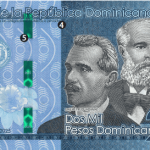The constituent process continues to take shape. After the installation of the Expert Commission, now it was the turn of the Technical Admissibility Committee, the body that will be in charge of ensuring compliance with the 12 institutional bases agreed upon in the “Agreement for Chile”.
After settling in the offices of the former National Congress in Santiago, the instance defined -unanimously- its board of directors, choosing the lawyer Ana María García (Evópoli quota) as its president. The lawyer Claudio Grossman (PPD) was chosen as vice president.
The members of the Admissibility Technical Committee requested a recess in the installation ceremony in order to reach an agreement between each of the representatives and thus establish the presidency and vice-presidency of the instance. Here is the unanimity of the determination.
You may also be interested in:
García, 60, is a lawyer and public administrator from the University of Chile. She is an expert in constitutional law and has been president of the Chilean Association of Constitutional Law. She is an academic and tenured professor at the Law School of the University of Chile, lecturing on political, constitutional and administrative law.

Meanwhile, Grossman is a lawyer from the University of Chile and a doctor of law from the University of Amsterdam. In 2016 he was appointed as Chilean agent in Bolivia’s maritime lawsuit against Chile before the International Court of Justice in The Hague. In addition, he has been an advisor to the International Criminal Court and the Inter-American Commission on Human Rights.

In this way, the new instance will be made up of Marisol Peña, Víctor Manuel Avilés, Héctor Mery, María Cecilia Flores, Ana María García, Josefina Soto, Enrique García, Juan Carlos Ferrada, Estefanía Esparza, Claudio Grossman, Julia Urquieta, Tomás Jordán, Marco Contreras and Viviana Ponce de Leon.
After the election, García stated that they are going to give “the best of our technical knowledge, the best of the spirit that we have, so that the process is completely successful and above all with the collaboration of all of us, of all of you, and with the good spirit that I know encourages us all”.
For his part, Grossman pointed out that it is “a very good omen that this process has begun with unanimous agreements for the tables, both the Committee of Experts and the committee in which we are participating. You should never give up the opportunity to seek agreements, they give you great legitimacy to the whole process and it is a good advertisement for the tremendous expectations that all the people have”.
What will be the role of arbitrators in the constitutional process?
The step towards a new constituent process was taken after lengthy negotiations between the political parties with parliamentary representation. In the so-called “Agreement for Chile” it was agreed that twelve institutional “edges” will be complied with, from which the new bodies will not be able to leave at the time of drafting the Magna Carta proposal.
Among these is that “the Chilean nation is unique and indivisible”, that Chile is a social and democratic State of law and the separation of State powers. For this to be fulfilled, it was agreed to create the Admissibility Technical Committee, better known as the “arbitrators” of the new process, so that these borders are fulfilled.
The “arbitrators” must act when required by members of the Expert Commission, which will have the role of preparing a draft Constitution, and the Constitutional Council, which will draft the bulk of the proposed Constitution.
The Admissibility Technical Committee will have the responsibility of reviewing the standards approved in the different instances that are presented before the Expert Commission and/or the Constitutional Council to settle possible inadmissibility of these when they are contrary to the institutional bases.
In view of the foregoing, at least one fifth of the Constitutional Council (10 councilors), or two fifths of the Expert Commission (10 expert councilors) may pronounce when required.
According to the agreement, the committee will resolve knowing the legal background and applying the constitutional bases in accordance with the constitutional norms and interpretation. In the event of accepting the inadmissibility of any rule, it may not be part of the text of the new Constitution.

















